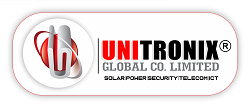VEHICLE & FLEET MANAGEMENT TRAINING

Get Trained! Be Certified! Be Employable
VEHICLE & FLEET MANAGEMENT TRAINING
WHAT YOU LEARN
Introduction to Vehicle and Fleet Management: Understanding the importance of efficient fleet management. Role of fleet managers and key responsibilities.
Fleet Planning and Scheduling: Fleet size determination based on operational requirements. Route planning, scheduling, and load optimization. Vehicle Acquisition and Disposal: Fleet replacement strategies and vehicle acquisition process. Methods for disposing of older vehicles. Maintenance and Repairs: Implementing preventive maintenance schedules. Managing vehicle repairs, inspections, and servicing. Fuel Management and Efficiency: Fuel consumption monitoring and fuel efficiency optimization. Strategies for reducing fuel costs and emissions. Driver Management and Training: Recruitment, training, and management of fleet drivers. Promoting safe driving practices and driver performance evaluation. Telematics and Vehicle Tracking: Using GPS and telematics systems for real-time vehicle tracking. Data collection for monitoring vehicle performance. Vehicle Safety and Compliance: Ensuring compliance with safety regulations and standards. Implementing safety policies and procedures. Insurance and Risk Management: Managing fleet insurance, claims, and risk assessment. Strategies for reducing accidents and minimizing risks. Budgeting and Cost Control: Developing and managing fleet budgets. Controlling operational costs and expenses. Environmental Sustainability: Implementing eco-friendly practices and reducing environmental impact. Incorporating electric and hybrid vehicles into the fleet. Fleet Technology and Software: Utilizing fleet management software for monitoring and analysis. Integrating technology for data-driven decision-making. Regulatory Compliance: Navigating transportation regulations and compliance requirements. Ensuring adherence to local, regional, and national laws. Fleet Performance Metrics and Reporting: Defining key performance indicators (KPIs) for fleet management. Generating performance reports and analyzing data. Emergency Response and Contingency Planning: Developing contingency plans for emergencies and breakdowns. Ensuring business continuity and quick response. Ethical and Social Considerations: Addressing ethical concerns related to fleet management. Community engagement and responsible practices. Case Studies and Real-world Examples: Analyzing successful fleet management strategies and challenges. Learning from practical experiences in fleet operations.OUR AIM
UNITRONIX TRAINING ACADEMY (UTA) is the training arm of UNITRONIX GLOBAL CO. LIMITED; one of the fastest growing reputable RENEWABLE ENERGY companies in Nigeria. In partnership with the world’s top- rated solar modules manufacturer OEM across the world, we deliver intensive theoretical, practical and on-site installation training in solar energy. Our trainings are delivered in a conducive environment, with experienced professionals and hands-on practical sessions. Our training sessions are very interactive to ensure full understanding of all topics covered. At the end of the training, every trainee will be certified and accredited as a Unitronix Dealer for the purposes of partnership.
BENEFITS OF THIS TRAINING
- Become a certified installer/professional
- Gain employment with premier solar companies
- Engage in business partnerships and mentoring with UTA, the industry’s foremost training institution.
- Stay informed about emerging solar technologies and applications firsthand
- Achieve internationally recognized certification
- Join the UTA alumni network, unlocking exclusive benefits
- Tap into the expertise of our team of skilled engineers
- Attain membership in leading renewable energy associations

